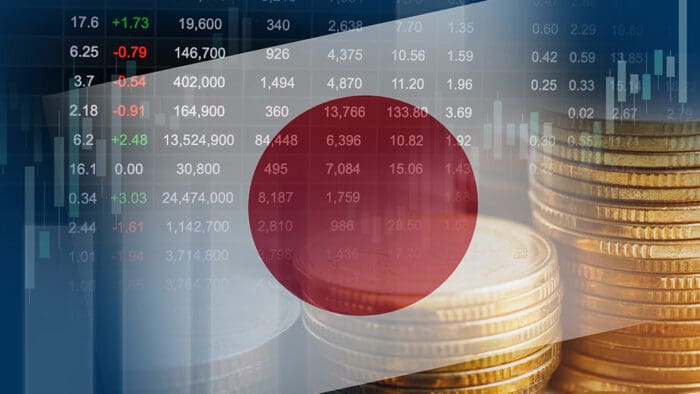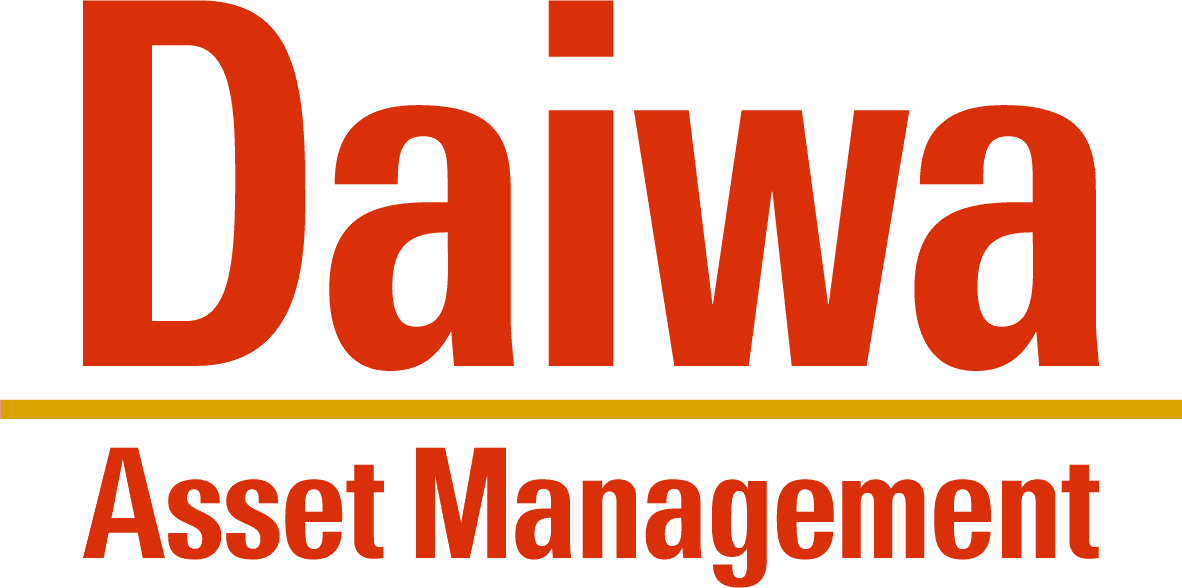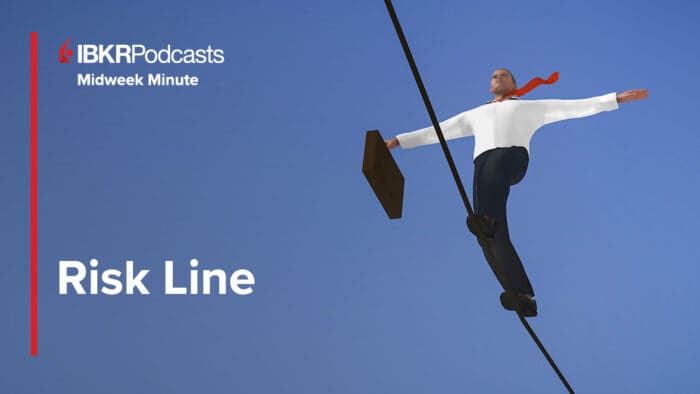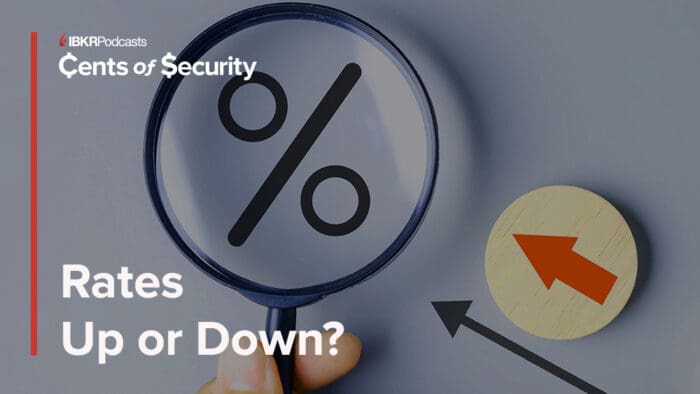While the market flirts with fresh highs, Fed officials seem more focused on auditioning for the next administration than cutting rates. Steve Sosnick joins Andrew Wilkinson to unpack the drama, from Powell’s tightrope walk to the tariff threats hiding just offstage.
Summary – IBKR Podcasts Ep. 271
The following is a summary of a live audio recording and may contain errors in spelling or grammar. Although IBKR has edited for clarity no material changes have been made.
Andrew Wilkinson
The stock market is stretching towards fresh highs despite a seemingly devastating geopolitical backdrop. And back in the never-dull world of U.S. politics, Federal Reserve Chairman Powell is facing the wrath of the President via Truth Social. Welcome to the program, IBKR’s Chief Strategist, Steve Sosnick.
Steve Sosnick
Thank you so much, Andrew. Great to see you.
Andrew Wilkinson
Likewise. Steve, how deep do you believe the divisions within the FOMC are regarding the urgency to cut interest rates?
Steve Sosnick
I think they’re somewhat deep. I do have to wonder if, at some level, this isn’t the latest round of The Apprentice, where certain Fed governors are lobbying to be hired and not fired when the Chairman’s term is up. And so I think that’s probably why Christopher Waller’s statements were geared to an audience of one, let’s say. And Michelle Bowman has done basically an about-face—which, everybody’s entitled to change their mind, believe me, that’s well within her prerogative. But I do have to wonder if, at some level, there isn’t a little bit of an attempt to curry favor with the President.
And so I think in some ways, that probably hardens Powell’s resolve, because I think he does not want to be seen that way. One of the great—like the third leg of the dual mandate—is: don’t be Arthur Burns if you’re the Chairman. And that is, don’t do stuff politically that might be perceived terribly by history. I think that’s probably the direction they’re leaning in, especially with all the uncertainty regarding tariffs—basically tariffs at this point, since oil’s kind of been taken off the table.
Andrew Wilkinson
We will talk about both tariffs and oil in a second, Steve, but I wanted to bring the audience right up to date. We’re recording today’s episode—Wednesday the 25th—just at the market open. It’s amazing, don’t you find, how a near all-out war following the U.S. “All on Iran” has stoked fresh buying across the stock market? Why do you think the bulls are charging so hard right now?
Steve Sosnick
Because they never really left. They took a break. Geopolitics is more of an excuse than a rationale, when you think about it. Short of an all-out war involving the U.S.—okay, that would be problematic—but geopolitics matter to the extent that U.S. companies are affected by them.
So if there was an oil shock—yeah, that obviously stinks. And that was where you saw the VIX tick up a bit, where you saw the markets take a pause. Beyond that—and this is something I’ve written fairly consistently on—otherwise, stock investors think in terms of the stuff that moves stocks: revenues, earnings, cash flows. And how is this going to affect those factors that come into market valuation?
In this case, obviously oil is the big wild card. If Iran did something in the Straits of Hormuz, then obviously everybody’s earnings, dividends, cash flows, etc., get affected. Otherwise, Iran is not part of the global economy. It hasn’t been for decades. Yes, they ship oil to Russia and China, but basically there are no multinational companies that one’s able to trade in an easy manner that do business directly in Iran.
Israel is a part of the world economy. But if you’re thinking about the multinationals that do business there—which is pretty much all of them—it’s not a significant piece of their bottom line. Microsoft has… I’m sure there’s business there; I don’t know to what extent, but it’s probably a rounding error, considering just Israel’s relative size in the world economy.
Once the oil pressure got out of the way, please feel free to resume your places on the dance floor.
Andrew Wilkinson
Are you surprised by the response in the crude oil market following the Iran bombing?
Steve Sosnick
Yes and no. I think we never really got to panicky levels. It became fairly clear that it was going to be almost as detrimental to Iran as it would be to anybody else—cutting off your nose to spite your face kind of thing.
But you did have this momentum rush up in oil. And when crowded trades end—I’m looking at you, tech stocks in April, by the way—they end hard. You had a situation where everybody became an oil analyst for two weeks, and now we’re back to being AI analysts full time.
Andrew Wilkinson
Steve, tariffs have taken a back seat. Do you believe that the distraction of the Israel-Iran conflict changes anything on the trade front?
Steve Sosnick
Not really. I think there are some political pundits who’ve said the U.S. involvement was as much a “wag the dog” thing to distract from tariffs and the “Big Beautiful Bill,” which is actually polling at relatively homely levels.
So I don’t know. But I think, basically, we can’t lose sight of the tariffs. The market has basically fully baked in the notion that they will either be extended or just kept at 10%—10% plus 30% for China—and this is what we’ll live with. I don’t think the market’s ready for another surprise if it turns out that the deadlines do not get moved once again. The market’s pricing in moving goalposts.
I’m not going to use the term for one of my favorite Mexican snacks involving the type of trade that it is, but that’s largely what’s priced in—either something’s going to get resolved in about a week and a half (which seems unlikely), or the goalposts get moved again. And there is some precedent for that. That’s where the market has led us.
Andrew Wilkinson
Having said everything in this episode, do you think we’ve now seen the back of the elevated volatility levels for 2025?
Steve Sosnick
Nope. Absolutely not. Think of the things we’ve just discussed. Okay, so we’ve moved the geopolitics out of it. But I think the market again has gotten very sanguine about the idea of rate cuts.
Pretty much, that’s actually the norm too, right? The market’s almost always pricing in more rate cuts than the Fed is willing to deliver. Just think about the beginning of 2024—“Where are my eight rate cuts?” We got four. So now we’re pricing in two. Maybe we get two, maybe we get one, maybe we actually get zero. A lot does have to do with the tariff structure.
And realistically, the person in charge is a volatile guy. And part of his governing strategy is to keep people guessing. Keeping people guessing is volatility. That’s where it is.
Just as with anything else—“buy the dips,” I do think, works in volatility as well, especially since it does tend to be a bit mean-reverting. It has some mean-reverting characteristics, actually even more so than stocks. You start to see it around 16 or 17, which is where we’ve found a reasonable low. I’d rather be a buyer than a seller at those levels.
Andrew Wilkinson
Brilliant. Steve Sosnick, thank you for joining me.
Steve Sosnick
My pleasure, Andrew. Take care.
Andrew Wilkinson
If you haven’t already subscribed, remember to do so wherever you download your podcasts from.
Disclosure: Interactive Brokers
The analysis in this material is provided for information only and is not and should not be construed as an offer to sell or the solicitation of an offer to buy any security. To the extent that this material discusses general market activity, industry or sector trends or other broad-based economic or political conditions, it should not be construed as research or investment advice. To the extent that it includes references to specific securities, commodities, currencies, or other instruments, those references do not constitute a recommendation by IBKR to buy, sell or hold such investments. This material does not and is not intended to take into account the particular financial conditions, investment objectives or requirements of individual customers. Before acting on this material, you should consider whether it is suitable for your particular circumstances and, as necessary, seek professional advice.
The views and opinions expressed herein are those of the author and do not necessarily reflect the views of Interactive Brokers, its affiliates, or its employees.
















Join The Conversation
For specific platform feedback and suggestions, please submit it directly to our team using these instructions.
If you have an account-specific question or concern, please reach out to Client Services.
We encourage you to look through our FAQs before posting. Your question may already be covered!